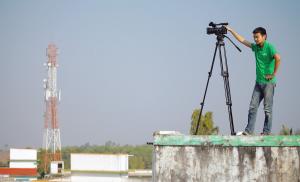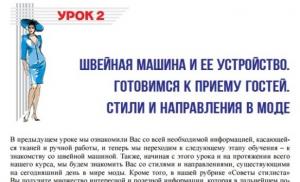Gbou SPO "Kstov Oil College named after B.I. Kornilov"
From September 21 to 23, the III Regional Championship “Young Professionals” (WorldSkills Russia 2016) was held in Nizhny Novgorod as part of the Fifth International Business Summit.
More than 160 students from higher and secondary professional educational organizations took part in competitions in 22 competencies, the work of the competitors was assessed by more than 200 experts.
The state budgetary professional educational institution “Kstovo Oil College named after Boris Ivanovich Kornilov” also took part in this important championship. On the basis of our technical school there was a specialized platform for the competence “Laboratory chemical analysis”.
5 participants from various professional educational institutions of the Nizhny Novgorod region were declared to participate in the Championship in this competency; 1 participant represented professional education Vladimir region. “Kstovo Oil College named after Boris Ivanovich Kornilov” had the honor of introducing 4th year students majoring in “Oil and Gas Processing” Alina Stolyarova and Alena Palmovskaya.
The competition task included seven modules, for which participants had to have knowledge in such professional areas as the ability to conduct chemical and physical-chemical tests, as well as qualitative and quantitative analyzes using high-tech equipment; determine optimal analysis methods; comply with sanitary and hygienic requirements and labor protection standards.
Competency judging was carried out by 9 experts, including specialists from LUKOIL-Nizhegorodnefteorgsintez LLC and SIBUR-Kstovo LLC. They assessed the consistency, correctness, and quality of work performed in accordance with the competition task.
The competence partner was LUKOIL-Nizhegorodnefteorgsintez LLC, which ensured the operation of a specialized site necessary equipment And consumables. Also, thanks to this partnership, valuable gifts were provided to the winners and memorable gifts to all participants in the “Laboratory Chemical Analysis” competency.
As part of the grand opening of the specialized site “Laboratory Chemical Analysis”, Deputy general director for administrative issues and personnel of LLC LUKOIL-Nizhegorodnefteorgsintez, Fedor Aleksandrovich Zimin presented memorable gifts to all participants.

On the same day, at the technical school, as part of career guidance work, students from schools in the city of Kstovo were introduced to the technical school and the WorldSkills movement. More than 200 teenagers visited the resource center, museum and specialized site. Artem Vladimirovich Kolpakov, a graduate of the technical school and leading economist of the planning department of LUKOIL-Nizhegorodnefteorgsintez LLC, made a presentation of the plant.

On September 21, a presentation of the profile competence of the GBPOU KST named after. B.I. Kornilov in the second pavilion of the Nizhny Novgorod Fair. As part of this demonstration, a bright chemical show was held, prepared by teacher O.V. Bogatyreva, laboratory assistant L.N. Belan. and technical school students.

According to the results of the Championship in the “Laboratory Chemical Analysis” competency, the highest result was shown by Alina Stolyarova, who scored 96.5 points, but, unfortunately, she participated outside the competition, so the gold medal was awarded to Alena Palmovskaya with a score of 95.2 points. In addition, the fact that our students left far behind other competitors was extremely pleasant!
Pavel Leonidovich Logunov, Deputy General Director for Economics and Finance of LUKOIL-Nizhegorodnefteorgsintez LLC, took part in summing up the results of the III Regional Championship “Young Professionals” (WorldSkills Russia 2016) in the “Laboratory Chemical Analysis” competency; it was he who presented diplomas and memorable gifts to the championship winners .
In the “Welding Technologies” competency, our graduate Nikolay Khlebtsov, scoring 30.40 points, became a silver medalist. Nikolai Khabarov, winner of the previous Regional Championship in this competency, played an important role in his professional and psychological preparation.

Such high achievements were the result of the joint work of a team of like-minded people from our technical school: the main expert in the “Laboratory Chemical Analysis” competency G.S. Klimova, the expert O.S. Azova, as well as the chief expert in the “Welding Works” competency N.G. Kolpakova, expert Trushnikova S.M., Novozhilova A.N.

Participation in the Championship is an opportunity to meet promising and talented young people, to show the results of their educational programs and compare your own achievements with the successes of other educational organizations.
Kstovo Petroleum College
Russian FederationKstovo, st. Shkolnaya, 14
8 (83145) 7-58-86
http://knt.edu.ru
This building, located on one of the quiet streets of our city, is already familiar to more than one generation of Kstovo residents. Every morning hundreds of young people, boys and girls come here. They go to gain knowledge that will help them master the professions that are very necessary for our city: mechanic, electrician, instrumentation specialist, builder, accountant-economist and, finally, technologist - the basis of the fundamentals of oil refining. On the wall of the central entrance there is a modest sign “Kstovo Oil College”. It was he who turned 50 years old in December 2011, the first and so far the only secondary vocational educational institution on the Kstovo land. And how it all began...
The 50s of the last century... The country was healing the bloody wounds of the war at an accelerated pace. The discovery of oil and gas fields accelerated the development of the oil refining industry. The government of the country decides to build the Novogorkovsky oil refinery. Workers come from all over the country to build a new plant and city. In 1954, a branch of the Gorky Welding and Assembly College of the USSR Ministry of Construction was opened. Here they trained specialists in civil and industrial construction, who were so necessary for the construction of industrial facilities and the construction of housing and social and cultural facilities. But soon this educational institution ceased to exist. The oil refinery was being built at a rapid pace and it was in dire need of specialists, and there was no way to count on the arrival of qualified personnel: grandiose construction was underway throughout the country. The decision to create a technical school is the call of the time, therefore, the proposal of the first director of the Novogorkovsky oil refinery, Vitaly Semenovich Edrenkin, to open a technical school to train its personnel, was unanimously approved by specialists.
The technical school was created as a “personnel department” of an oil refinery in 1960, first as a branch of the Dzerzhinsky Chemical-Technological Technical School, and since 1961 it became the Kstovo Evening Technical School.
Its first director, Boris Ivanovich Kornilov, played a huge role in the construction of the technical school and in uniting the teaching staff. He remained in the memory of people as a simple, sincere person, a talented teacher and organizer. Those who worked with him were amazed by his inexhaustible initiative, efficiency, ability to persuade and lead. At the plant they joked: “If Kornilov wants, he will prove that the dam should be built along the current.” Under his leadership, the first selection committee technical school, which recruited students to train them in two specialties: “Equipment for petrochemical enterprises” (mechanics) and “Oil and gas processing technology” (operators). 14 people began their studies in the premises of school No. 2, then No. 5.
In September 1961, in the assembly hall of school No. 5, the director of the technical school B.I. Kornilov informed the students about the completion of the construction of the Kstovo Oil College’s own educational building. In total, more than 400 people were studying in the evening and correspondence courses, striving to become full-fledged specialists. In 1963, the first two groups of future technologists began full-time training. And in the same year, the first evening and correspondence departments Having received the long-awaited diplomas, they left the already constructed CST building.
A kind word should be given to the first students of the technical school. Using their free time, they helped build buildings, improve the territory, and create new classrooms and laboratories. Among them are Udalov N.A., Bogolepov Yu.F., Taratynov M.I., Sergeev V.I., Bokov N.G., Berezkin I.M. and many, many others. They performed well in production as well.
A teaching staff was formed. The plant provided enormous assistance here too. Leading refinery specialists conducted classes, supervised coursework and diploma works, and student internships at the enterprise. These are Eremeev G.A., Karpenko A.N., Spassky B.I., Shib L.M., Milkov S.P., Marukov V.S., Moderatov M.P. and others.
Creating the educational and material base of the technical school in those years required a lot of trouble. And they were not unsuccessful: visual aids for laboratories were purchased, mock-ups of installations, samples of reagents, etc. were obtained. The equipment of workshops, laboratories and classrooms made it possible to open a full-time department at the technical school for the training of mechanics, technologists, builders, and later electricians, instrument technicians and accountants. A very important and necessary half of the learning process for any profession is practice. The first deputy director for practical (industrial) training was Alexey Ivanovich Sumaneev, a veteran of the Great Patriotic War. He created mechanical workshops associated with industrial training and actively promoted a close connection with production. Together with Alexey Ivanovich, the head of the workshops, Mikhail Vasilyevich Shupilov, taught the children production wisdom.
From the first days, the technical school teachers T.V. Zemskova, E.K. Kratovskaya, G.T. Novichkova worked. The staff of teachers increased every year. Many of them linked their fate with the technical school. Good traditions in teaching and upbringing, and in the work of the student body, were formed and established. These years were difficult, but also interesting.
The team was led by B.I. Kornilov, deputy. Director Malishevskaya O.A., Head. full-time department of Gafurov Z.D.. The classes were interesting with the honored teachers of the RSFSR Ivanov A.A. and Tolsteneva V.P.. Characteristic feature works of teachers and class teachers of the 60-80s Soroko B.E., Kharkevich N.G., Konovalova G.A., Stepanova V.N., Kiseleva K.V., Belkova L.V., Nikitina T. P., Tsvetova G.M., Vladimirskaya N.V., Vasenkina M.P., Zemskova A.V., Dagaeva L.I., Molchanova L.A., Ananicheva G.M., Sennikova T.I. there was conscientiousness, the ability to pick up new things, generosity of soul. It was during these years that the technical school developed such forms of work as an international friendship club, a university of public professions, a student headquarters for work on a sponsored state farm, evenings for the defense of professions, debates and KVN, tourist trips, search work of students, which led to the creation of the city's first museum military and labor glory of Kstovo residents.
Such fruitful work was continued by Nikolai Aleksandrovich Sennikov, who replaced B.I. Kornilov. in 1966. He headed the teaching staff for almost 20 years. During this time, thousands of qualified specialists in oil refining and petrochemistry, economists, and builders graduated from the walls of the technical school. Together with Sennikov N.A. Working at that time were the head of the evening department Churikov G.I., a graduate of the technical school, the head of the daytime department Manakhova Z.A., the deputy director for industrial training Dmitrievtsev V.M., the head of the daytime department for educational work Vladimirsky S.V.. They joined teaching staff and contributed to the development of the technical school teachers Krasikova N.G., Vikhreva V.D., Belyakova A.S., Zheleznova L.F., Kiseleva T.V., Golubev V.S., Fedotov G.K. ., Strokov N.V., Baruzdina N.N., Klyanina G.V., Zalyubina N.M., Malkin Yu.S., Smirnov A.G., Dementyev Yu.P., library workers of the technical school Wolfson E. G., Noskova G.A., Shtyrkova G.V., employees, including N.S. Malkina, who has been working since the first years.
Since the founding of the technical school, much attention has been paid to sports work among students. Among the study groups, competitions were held in many sports, and sports sections worked. College athletes annually competed in sports competitions in 10-12 sports among secondary special educational institutions Gorky region. On the basis of our technical school, winter sports competitions were repeatedly held among students of technical schools of the USSR Ministry of Petroleum and Chemical Industry.
As a result of this multifaceted work, the technical school has been repeatedly awarded prizes among more than two dozen technical schools in the industry. Many graduates of the technical school became managers at enterprises and were elected deputies of the Supreme Soviets of the USSR and the RSFSR, regional and city councils.
List of professions and specialties
- 02/38/01 Economics and accounting
- 02.21.03 Construction and operation of gas and oil pipelines and gas and oil storage facilities
- 02/15/01 Installation and technical operation of industrial equipment
- 02/15/07 Automation of technological processes and production
- 02/18/09 Oil and gas refining
- 02/08/01 Construction and operation of buildings and structures
- 01/15/05 Welder (electric welding and gas welding work)
- 01/08/08 Master of finishing construction works
- 01/08/07 Master of general construction works
- 01/08/18 Electrician of electrical networks and electrical equipment
- 02/13/11 Technical operation and maintenance of electrical and electromechanical equipment
VIDEO - GBOU SPO "Kstov Oil College named after B.I. Kornilov"
1. General Provisions
1.1. Rating assessment of the work of a student, study group, initiative direction of GBPOU KST named after. B.I. Kornilov (hereinafter referred to as the Rating of a student, study group, initiative direction, respectively) is a way to identify the level of activity of students, study group, initiative direction of a technical school.
1.2. The purpose of creating the Ranking is to increase objectivity in assessing the level of achievements for making decisions about rewards, declaring gratitude and other types of material and non-material support for students,study groups, initiative areas.
1.5. After summing up the Rating, it is reset to zero.
1.7. The educational department of the technical school is responsible for the overall coordination of the Rating.
2. Evaluation criteria
2.1.2. A student's place in the Ranking is determined by the number of points he has scored. Students who score less than 50% of the lowest possible points are not taken into account in the Ranking. The smallest possible number of points is calculated by the formula Nk = N / 0.5, where Nk is the smallest number, and N is the total number of events per semester. The position of students who have scored the same number of points is determined by the decision of the university scholarship committee.
2.1.3. The number of points awarded to a student depends on varying degrees of participation in activities.
2.1.4. Degrees of student participation:
- participant (participation in the event) – 0.5 points
- co-organizer (helped in organizing the event) – 1 point
- organizer (directly involved in organizing the event) – 1.5 points
2.1.5.
- at the technical school/city level – 1 point
- at the regional level – 2 points
- at the Russian level – 3 points
2.2.2. The number of points awarded to a study group depends on its participation and the result shown at the end of each event. Added to the final Rating of the study group GPA the progress of all students studying there for the 1st and 2nd semesters.
2.2.3. Degrees of study group participation:
- participant (participation in the event) – 0.5 points;
- co-organizer (helped in organizing the event) – 1 point;
- organizer (was directly involved in organizing the event) – 1.5 points.
2.2.4. For high results, additional points are awarded:
- at the technical school/city level – 1 point;
- at the regional level – 2 points;
- at the Russian level – 3 points.
2.2.5. The Student Group Rating may also take into account the student’s participation in individual competitions, subject to the direct participation of the participant’s class teacher in preparation for the competition. In this case, points are awarded according to the above scales of the degree of participation and group results.
2.3.2. The best initiative direction according to the Initiative Direction Rating is determined by the smallest amount of places occupied in individual events.
2.3.3. In case of equality in the number of places, preference is given to the initiative direction that has best result in the “Student Spring” event.
2.3.4. Initiative areas that do not result in one of the events take places after areas with a full rating.
2.3.5. Initiative areas that take 1st, 2nd and 3rd places are awarded diplomas. The winning initiative direction is also awarded a challenge cup.
2.3.6. For violations of the rules of each event, initiative areas may be fined. 1 penalty point may be added to the destination rating for each violation.
3. Final provisions
3.1. The student who scores the highest number of points in the direction rating has the right to apply for:
- receive awards and encouragement from the technical school;
- take part in city, regional, all-Russian and international events at the expense of the technical school administration;
- other types of incentives.













